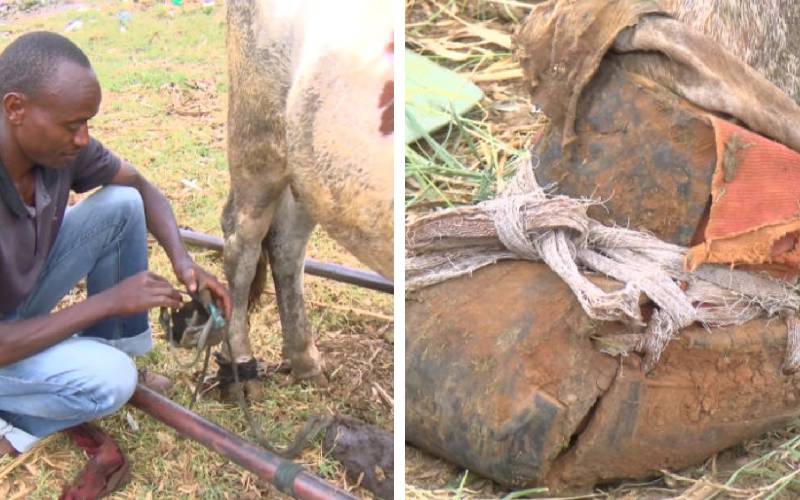×
The Standard e-Paper
Home To Bold Columnists

Albert Murimi, an Ox Cart transporter, fits his Ox with shoes at Kutus market in Kirinyaga County. [Kariuki Timothy,Standard]
Held every Monday and Thursday morning, Kutus market day is one of the biggest fresh produce markets in Kirinyaga county.